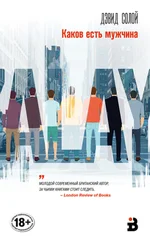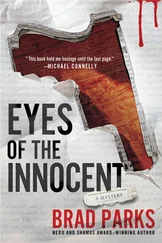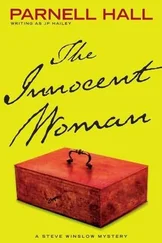I said to you, ‘Your wife’s eight months pregnant. Don’t you think you should be with her?’ I didn’t keep my voice down. I wanted your mistress and her neighbours to hear.
And you said, ‘It’s not your business. What do you want?’
We went outside and spoke in the street. It was a moonless night. A hundred metres away tall pale lights marked the intersection. Mosquitoes tormented us. And I told you there was a piece I thought you should write for the newspaper.
‘What piece?’ you said.
‘Something important.’
‘What?’ You were still irritable, and slightly suspicious.
I explained the situation to you. Not the situation with Lozovsky, of course. Not him specifically. The wider situ ation. You listened in silence. Negative foreign influences, I said, were starting to pervade the intellectual life of the Soviet Union. Nihilistic influences. Even in the sciences. Yes, even in the sciences. For an example one might point to the work of an eminent neuropsychologist living in Sverdlovsk oblast, Mikhail Naumovich Lozovsky …
And you said, ‘It’s not my sort of thing, Sasha.’
‘Let me finish. Mikhail Naumovich Lozovsky, who thinks the world is inherently meaningless. That meaning is a purely subjective phenomenon. He has written this, in scientific journals …’
This was true. Lozovsky had written that, in so many words. It was what Mikhalkov had found – a piece in a scientific journal, published in 1936.
‘Sasha,’ you said, ‘it’s not my thing.’
‘Do you understand what I’m saying?’
‘It’s not my thing, Sasha.’
‘Why not?’
‘It’s just not. I don’t know anything about it.’
As if that had ever stopped you in the past!
‘Don’t worry about that,’ I said. ‘I have some material for you.’
‘What material?’
‘About Lozovsky.’
‘What do you mean? What sort of material?’
‘Material. Facts.’
‘Facts?’
‘Of course. This is important,’ I said. ‘It’s going to be an important piece.’
You sighed. ‘Would I be able to speak to him?’
‘Lozovsky? No.’
‘Why not?’
‘Vanya …’
‘Why wouldn’t I be able to speak to him?’ You were petulant now.
‘Why do you need to speak to him? This is going to be an important piece, Vanya. Do you understand? What have you been working on? Interviewing Stakhanovites?’
That was what you did in those days, Ivan. You interviewed Stakhanovites. ‘Aleksey Tishchenko, along with his wife Zoya, arrived in Sverdlovsk in 1945 with all their possessions in a single suitcase made of newspaper. Now, only three years later, the couple own furniture, including …’ You know the sort of thing.
‘That must get pretty tedious,’ I said. ‘They’re all the same aren’t they, Stakhanovites …’
I think what I was saying must have upset you. I think that’s why you suddenly said, ‘I wrote that thing I told you about.’
‘What thing?’
‘The strike. You know.’
There was a long silence. ‘You wrote it?’ You said nothing. ‘Why? WHY? I told you not to!’
‘I know –’
‘Why did you write it? Why did you do that? Don’t you understand?’
‘I understand –’
‘No, you don’t! What was the point? The piece wasn’t published. You’ve got to think. You’ve got a family now. What if you lose your job? What did your editor say?’
‘Nothing.’
‘Nothing? He’s said nothing to you about it?’
‘No.’
You seemed to think this was a positive sign. You were wrong. I said so. And then I said, ‘I have to tell you, Ivan, it would be in your interests to write this piece, the Lozovsky piece.’
‘What do you mean?’ you said sharply.
‘I’m not threatening you.’ I was upset that you had misunderstood me. I found your shoulder in the night. I was almost in tears. You may not have seen it, but you must have heard it in my voice. ‘Of course I’m not threatening you. I’m worried about you. The sort of name you’re making for yourself. Once you start to make that sort of name … You know what I’m talking about. This is an opportunity for you. That’s all I’m saying. Think about it. Please.’
You did know what I was talking about, and you did think about it. The tall pale lights of the intersection, a hundred metres off, stood in a snowstorm of insects.
‘Why do you want it?’ you said.
‘Why do I want it?’
‘Yes, why do you want it?’
‘What difference does it make?’
‘I want to know.’
‘Vanya …’
‘If I do it, I want to know. Why?’
When I said nothing, you sighed and said, ‘I’m tired, Sasha …’
‘They want Lozovsky out of his job.’
‘Who does? Why?’
‘What does it matter? It’s politics. They want him out. The obkom’s stuck its heels in. There’s a friend of his, something … It’s not very edifying. They want to get this material out. You don’t have to worry about that though. The story itself is totally sound. It’s not even about Lozovsky. Forget Lozovsky. He’s just an example of a wider phenomenon. That’s what the story’s about, and it’s very important.’
Your piece appeared on the front page of the ‘Urals Worker’ a week later. When you submitted it, the editor, not knowing what to do, phoned Mikhalkov – you yourself had told him to do this – and Mikhalkov, pretending to be unsure how to proceed, had pointed him to Veklishev. Having heard from the editor, Veklishev then phoned Mikhalkov with the name ‘Lozovsky’ and asked him who this was. Mikhalkov said he would look into it, and twenty-four hours later told Veklishev that he had looked into it, and found some quite worrying things. The unpublished newspaper piece seemed ‘spot on’, and in view of this, Mikhalkov said, it might be wise to move Lozovsky from ‘such a sensitive post’. One of Veklishev’s secretaries phoned the editor and two days later your piece was published. That weekend Veklishev went duck-shooting with Shestakov, who was then first secretary of the obkom. He mentioned the subject to him, and Shestakov – who had seen the story on the front page of the newspaper – said he would take it up with Suvorov, which he did. And ordered him to move Lozovsky from his post. Mikhalkov was all smiles.
Then the telegram from Moscow.
This was not expected. It took even Mikhalkov by surprise. ‘We got this today,’ he said, passing it to me. ‘Article 58.’ I.e. ‘Propaganda or agitation, containing an appeal for the overthrow, subverting or weakening of the Soviet power, and equally the dissemination or preparation or possession of literary materials of similar content.’ ‘I suppose they read the ‘Urals Worker’ in Moscow,’ he said. ‘Surprising as that may seem.’
I did not smile at this. I said nothing.
The next day I went to the procuracy, and took a number, and waited until a tired-looking official summoned me into his office, which was unpleasantly stuffy. The official – a stout old woman of a middle-aged man with a small moustache, and large patches of sweat in the armpits of his shirt – opened the window, and asked me to give him a short – he stressed the word ‘short’ – summary of the indictment. When I had finished, he went through the warrant line by line. Then he stamped it. We arrested Lozovsky the following week, when he was in town for a meeting at the oblispolkom.
SUMMER HAS BURNED itself out in dust and yellow grass. Unseen, weightless, its dead insects accumulate under the furniture. The Icelandic police will soon make their report. They have spent the night searching the Laugardalshöll Sports Exhibition Palace – dismantling furniture, probing wall cavities, prising up floorboards. Searching for electronic devices. Yesterday, Yefim Geller – Spassky’s second – made a public statement in which he accused the Americans of using such devices to interfere with Boris Vasilyevich’s brain. Members of the American delegation, he said, were often to be found in the hall when chess was not being played.
Читать дальше












